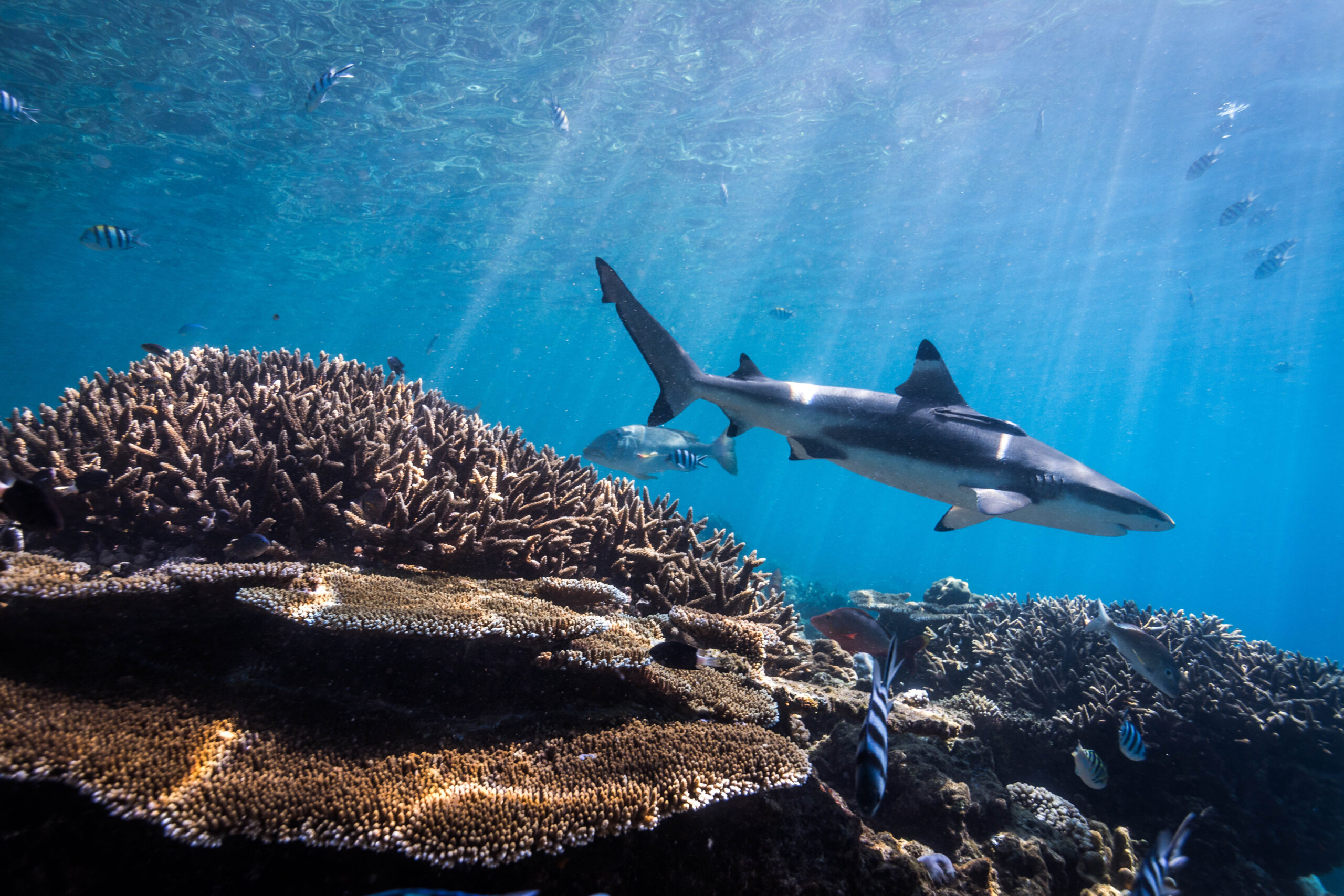Adaptive management is an iterative process by which management strategies are adjusted with new information. Although there are calls for adaptive management, few on-the-ground examples of success in conservation planning and MPA network design exist. This article describes a nine year adaptive comanagement process of an MPA network in Kubulan District, Fiji, where adaptive management is being used to revise MPA boundaries based on new science on coral reef resilience to climate change.
In Fiji, locally managed marine areas (LMMAs) have been established by 400 villages. Fiji has a diverse range of management strategies including fisheries management areas, managed fisheries closures, and no-take areas. The authors provide an informative table on how they used resilience principles in adapting their current MPA network management and design.
To increase resilience to climate change, the MPA network was adapted to include critical areas and a broader representation of reef types. Communities supported this because they believe that climate change is a threat to their reef resources. Since the no-take MPA already included reefs which have the most resilience potential, there was no change to no-take areas.
The authors believe that the communities were willing to increase management areas due to attitudes about current protected areas, perceptions of fisheries benefits, and income from a dive fee program.
Author: Weeks, R. and S.D. Jupiter
Year: 2013
View Full Article
Conservation Biology 27(6): 1234–1244. doi: 10.1111/cobi.12153


